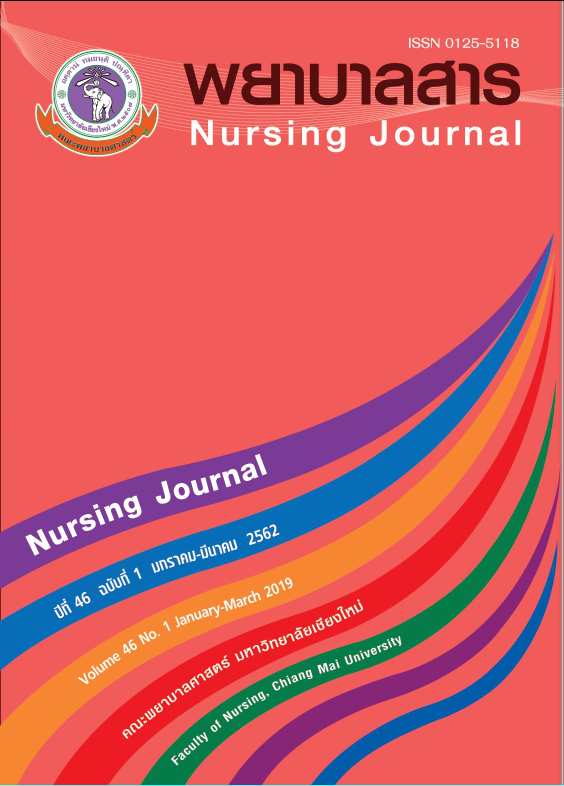Job Demands, Job Resources and Work Engagement Among Nurses in Tertiary Care Hospitals, Thanh Hoa Province, The Socialist Republic of Vietnam
Keywords:
Job Demands, Job Resources, Work Engagement Among NursesAbstract
Job resources stimulate and forward the willingness to dedicate one’s efforts and abilities to the work whereas job demands exhaust employees’ mental and physical energy. When the job resources increase, job demand decrease, work engagement will increase. The purposes of this study were to examine job demands, job resources, and work engagement as well as to examine the relationship between job demands, job resources and work engagement among nurses in tertiary care hospitals in Thanh Hoa province, the Socialist Republic of Vietnam. The sample consisted of 352 nurses, randomly selected from nurses in six tertiary care hospitals in Thanh Hoa Province. The research instruments were the Job Demands-Resources Scale (JDRS) and the 9-item Utrecht Work Engagement Scale (UWES-9). The validity of JDRS and UWES were confirmed for validity by the developers. The reliability coefficient of the JDRS and UWES-9 were .83.and .82, respectively. Data were analyzed using descriptive statistics and Spearman’s rank- order correlation.
The results of the study indicated that;
- The job demands and job resources as perceived by nurses were at moderate level.
- The overall score of work engagements perceived by nurses was at an average level.
- There was no relationship between job demands and work engagement whereas the job resources showed statistically significant moderate positive relationship with work engagement.
The results of this study could provide valuable information to nurse administrators in six tertiary care hospitals to understand the relationship between job demands, job resources and nurse work engagement for the development of proper strategies to reduce job demand and increase job resources in order to enhance work engagement among nurses.
References
Coetzer, C. F., & Rothmann, S. (2007). Job demands, job resources and work engagement of employees in a manufacturing organization. Southern African Business Review, 11, 17-32.
Demerouti, E., Bakker, A. B., Nachreiner, F., & Schaufeli, W. B. (2001). The job demands: Resources model of burnout. Journal of Applied Psychology, 86, 499-512.
Giang, N. T. Q. (2011). Factors predicting the participation in research among nurses in tertiary hospital, the northern region, the Socialist Republic of Vietnam. Master thesis, Chiang Mai University, Chiang Mai.
Hakanen, J. J., Bakker, A. B., & Schaufeli, W. B. (2006). Burnout and work engagement among teachers. Journal of School Psychology, 43, 495–513.
Jackson, L. T. B., & Rothmann, S. (2005). Work-related well-being of educators in a district of the North West Province. Perspectives in Education, 23, 107-122.
Kahn, W. A. (1990). Psychological Conditions of Personal Engagement and Disengagement at Work. Academy of Management Journal, 33, 692-724.
Luthans, K. W., Lebsack, S. A., & Lebsack, R. R. (2008). Positivity in healthcare: relation of optimism to performance. Journal of Health Organization and Management, 22(2), 178-188.
Muc, P. D. (2009). The Role of Head Nurses Today. Journal of Vietnam Nursing Information, 39, 22-25.
Othman, N., & Nasurdin, A. M. (2011). Work engagement of malaysian nurses: exploring the impact of hope and resilience. World Academy of Science, Engineering and Technology, 60, 1702-1706.
Quang, T. D. (2012). Nursing practice enviroment and burnout among nurses in central general hospitals, the socialist republic of vietnam. Master, Chiang Mai, Chiang Mai.
Rothmann, S., & Jordaan, G. M. E. (2006). Job demands, job resources and work engagement of academic staff in South African higher education institutions. South African Journal of Industrial Psychology, 32, 87-96.
Rothmann, S., & Joubert, J. H. M. (2007). Job demands, job resources, burnout and work engagement of managers at a platinum mine in the North West Province. South African Journal of Business Management, 38, 49-62.
Rothmann, S., Mostert, S., & Strydom, M. (2006). A psychometric evaluation of the job demands, resources scale in South Africa. SA Journal of Industrial Psychology, 2006, 32 (4), 76-86.
Schaufeli, W. B., & Bakker, A. B. (2003). Utrecht work engagement scale (UWES) preliminary manual. Utrecht University: Occupational Health Psychology Unit.
Schaufeli, W. B., Bakker, A. B., & Salanova, M. (2006). The measurement of work engagement with a short questionnaire: A cross-national study. Educational and Psychological Measurement, 66, 701–716.
Schaufeli, W. B., Salanova, M., Gonzalez-Roma, V., & Bakker, A. B. (2002a). The Measurement of Engagement and Burnout: A Confirmative Analytic Approach. Journal of Happiness Studies, 3, 71-92.
Schaufeli, W. B., Taris, T. W., & Van Rhenen, W. (2003). Workaholism, burnout and engagement: one of a kind or three different kinds of employee well-being? Applied Psychology: An International Review, 57, 173-120.
Statistics, D. o. G. (2011). Statistics year book Ha Noi: General Statistics Department.
Thanh, D. N. T. (2008). Expectation of freshman nurses at provincial general hospitals. Journal of Vietnam Nursing Information, 3, 15-18.
Thanh, D. N. T., Khymyu, A., & Baramee, J. (2010). Factors related to nurse burnout at Intensive Care Units of general hospitals in Ho Chi Minh City. The Magazine of Vietnam Nursing Scientific Research, 4, 292-303.
Wonder, A. C. (2011). Factors that facilitate and inhibit engagement of registered nurses: an analysis and evaluation of magnet versus non-magnet designated hospitals Unpublished doctoral dissertation, Indiana University.
Wu, M. L. (2010). Perceptions of work engagement of nurses in Taiwan. Unpublishment Doctoral Dissertation, The University of Texas.
Downloads
Published
How to Cite
Issue
Section
License
บทความที่ได้รับการตีพิมพ์เป็นลิขสิทธิ์ของวารสารพยาบาลสาร
ข้อความที่ปรากฏในบทความแต่ละเรื่องในวารสารวิชาการเล่มนี้เป็นความคิดเห็นส่วนตัวของผู้เขียนแต่ละท่านไม่เกี่ยวข้องกับมหาวิทยาลัยเชียงใหม่ และคณาจารย์ท่านอื่นๆในมหาวิทยาลัยฯ แต่อย่างใด ความรับผิดชอบองค์ประกอบทั้งหมดของบทความแต่ละเรื่องเป็นของผู้เขียนแต่ละท่าน หากมีความผิดพลาดใด ๆ ผู้เขียนแต่ละท่านจะรับผิดชอบบทความของตนเองแต่ผู้เดียว






